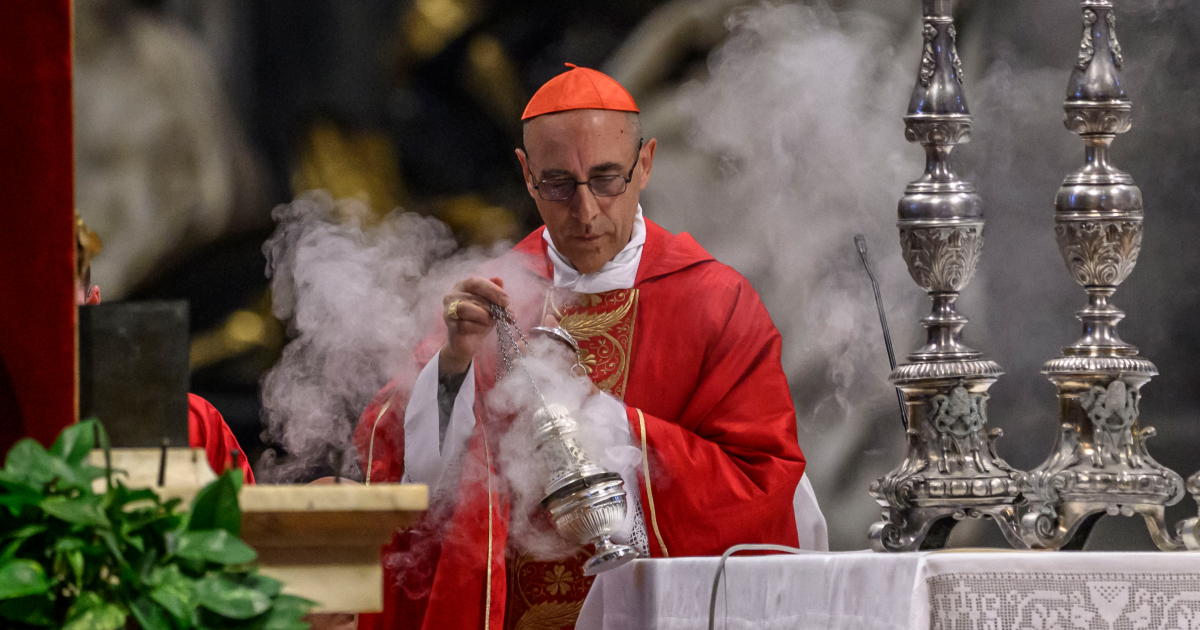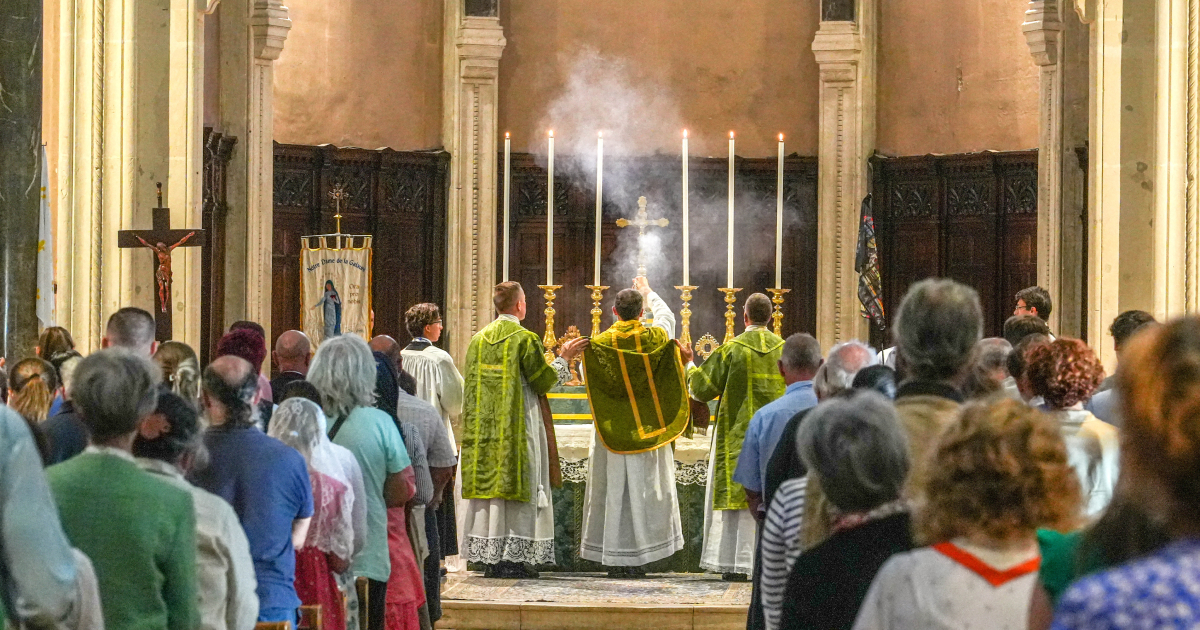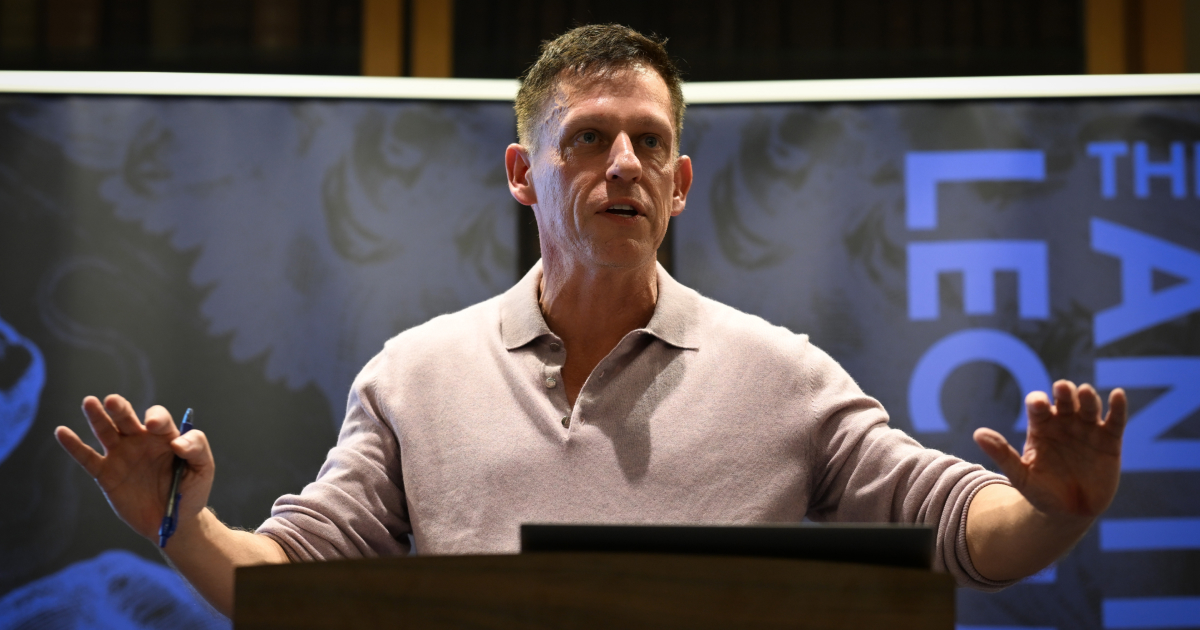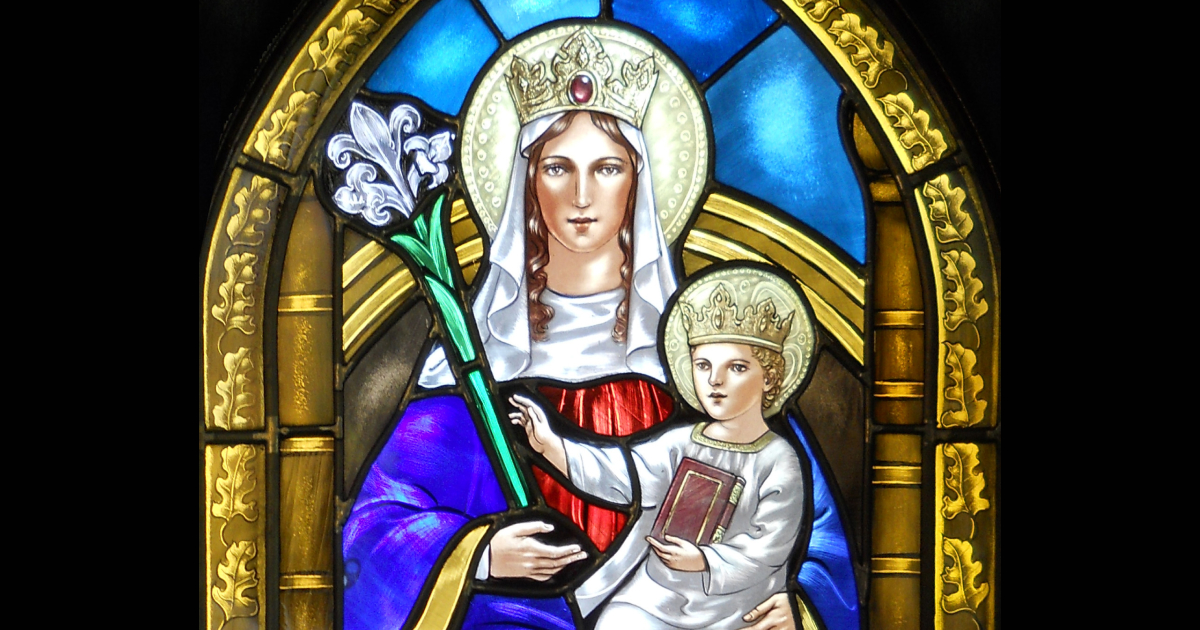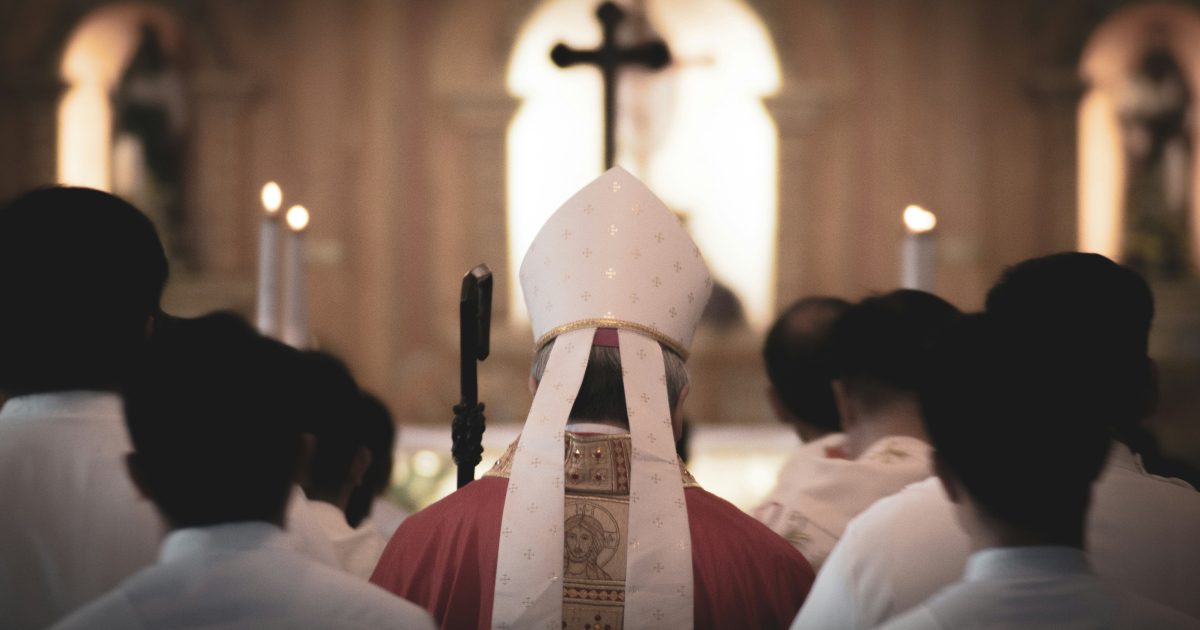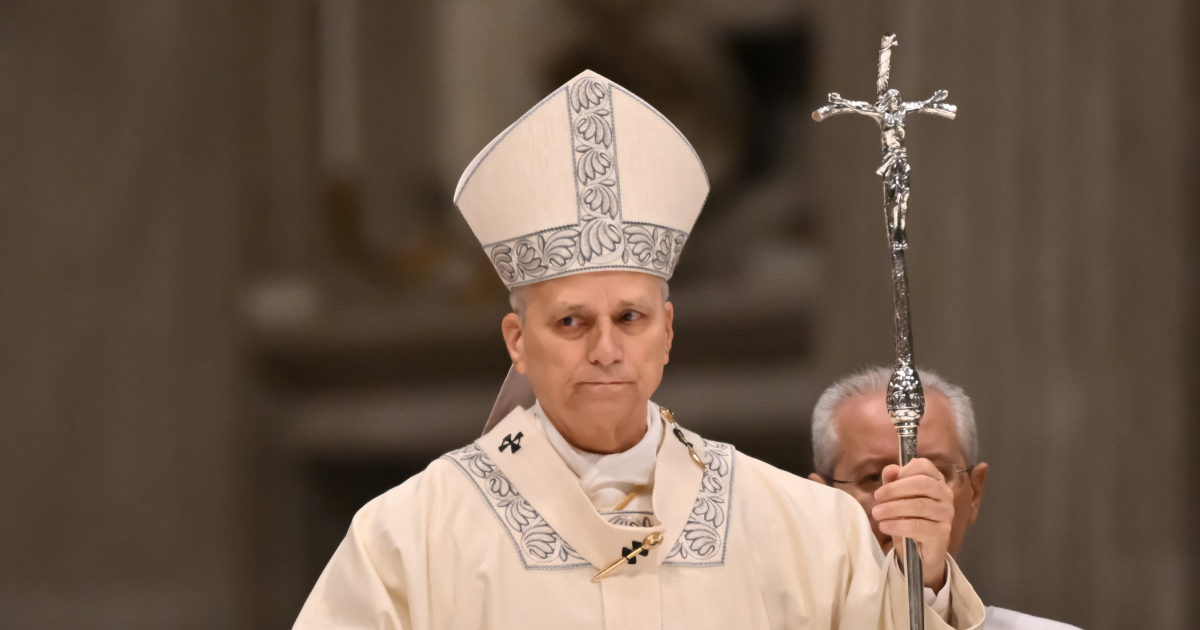The BBC's Global Disinformation Unit's recent investigation into Christian persecution in Nigeria is a masterclass in how to bury a massacre under methodological dispute. While the BBC agonises over whether 3,000 or 7,000 Christians were killed in eight months, the dead remain dead. Their churches remain burned. Their families remain displaced.
Yet the BBC's primary concern appears to be ensuring its audience understands that US conservatives may have overstated the case.
This is journalism as misdirection: find the weakest sources, dismantle them thoroughly, then treat that as sufficient grounds to dismiss what Britain's own government has called a crisis approaching genocide.
The BBC investigation opens with Donald Trump threatening to go "guns-a-blazing" into Nigeria. Trump makes a perfect target for BBC scepticism – with his tendency to be bombastic, crude, prone to exaggeration – but he also commands the world's most powerful military and the largest foreign-aid budget. His reinstatement of Nigeria as a "Country of Particular Concern" for religious-freedom violations had concrete diplomatic and security consequences.
Make Trump the story, and you need not engage with the substance behind it. Paint US conservatives as hysterical and you can ignore what drove their concern. The technique works because Trump is also an easy villain for the BBC's audience. But it substitutes theatre criticism for investigative journalism.
The BBC investigation makes no mention of the UK government's 2019 Mounstephen Review. Read that again: its Global Disinformation Unit investigated claims of Christian persecution in Nigeria and omitted Britain's own independent review into precisely that subject. The Mounstephen Review documented systematic violence, concluding that Boko Haram's targeting of Christians aimed to "eliminate Christianity and pave the way for the total Islamisation of the country".
The report warned that persecution in parts of Nigeria approached "the international definition of genocide". The UK Foreign Secretary at the time, Jeremy Hunt, stated: "It would be a mistake to overlook religious hatred as an important factor. Indeed, it is hard to avoid concluding that the gunmen who raided a church in Benue State, murdering two priests and seventeen worshippers, were motivated by anything else."
This was not fringe advocacy. It was an official government report, commissioned and endorsed by Her Majesty's Foreign Secretary. Yet the BBC chose silence about it. The omission cannot be accidental: the review's conclusions directly contradict the narrative the BBC wished to construct.
Nor was this an isolated oversight. In 2024, the House of Commons' briefing “Freedom of Religion or Belief in Nigeria” warned of "unacceptable" levels of violence, and in 2025 the Foreign Office confirmed "violent extremism and inter-communal violence … impinge on Nigerians' rights to freedom of religion".
At the same time, Genocide Watch highlighted more than 62,000 Christian deaths since 2000. None of this reached the BBC's pages.
Instead, the BBC quotes its own source, Ladd Serwat with ACLED (Armed Conflict Location & Event Data), claiming that "insurgent groups such as Boko Haram and Islamic State West Africa often present their campaigns as anti-Christian, but in practice their violence is indiscriminate and devastates entire communities”.
This is demonstrably false. Boko Haram does not merely present its campaign as anti-Christian; it explicitly declares it to be so.
Its spokesman announced "a campaign to eradicate the presence of Christians” – calling them "enemies" – in the effort to establish an Islamic state. Leader Abubakar Shekau warned: "We will treat them the way the Prophet treated the infidels he seized."
These are explicit statements of intent, documented by British government and UN sources alike.
The BBC also quotes analyst Christian Ani insisting that herder-farmer-related violence is about land and water: "to say that they are jihadists, it's a far stretch." This overlooks the persistent religious dimension to this violence. Fulani herdsmen massacred ten Christians on Monday in Benue State; in June they killed over 200 in Yelwata – a farming community in Guma County, Benue State – and reports suggest up to half a million people have been displaced this year in this one Nigerian state alone.
In 2020, the UK All-Party Parliamentary Group for International Freedom or Belief reported Islamic extremism among Fulani groups, including some which "adopt a comparable strategy to Boko Haram and ISWAP and demonstrate a clear intent to target Christians and potent symbols of Christian identity”.
The BBC's central argument is that a figure of 7,000 killed this year comes from InterSociety – an organisation linked to Igbo nationalism – and therefore cannot be trusted. Yet it accepts ACLED's lower estimate that at least 3,000 Christians have been killed this year. This correction is presented as though it undermines concern about the crisis.
There is something morally obscene about this framing. When does mass killing stop being newsworthy? At what body count does the BBC decide a crisis has been exaggerated? The tone suggests that 7,000 would be alarming, but 3,000 is merely regrettable. This is accounting logic applied to atrocity.
This treatment of casualty data also reveals a double standard so stark it demands explanation. When covering Gaza, the BBC routinely cites figures from the Hamas-run Gaza Health Ministry, describing them as "considered reliable by the UN". The methodology – hospital tallies and family reports under a militant administration – is accepted.
However when covering Nigeria, Christian documentation is subjected to withering scepticism. Open Doors is questioned. Christian Solidarity Worldwide, which holds UN consultative status, is ignored. International Christian Concern's casualty databases are unacknowledged. Even Britain's own Mounstephen Review is missing.
Both contexts involve partisan actors and imperfect data. What editorial principle explains trusting a Hamas-run ministry while doubting Christian NGOs and the UK Foreign Office? Not one that withstands scrutiny. The pattern suggests ideology, not methodology. Some victims receive the benefit of the doubt. Others must prove their deaths matter.
Moreover, the article concludes by citing ACLED's estimate that "just under 53,000 civilians, Muslims and Christians, have been reported killed in targeted political violence since 2009”. Fifty-three thousand people. The BBC treats this as contradicting claims of religious persecution. It does not. It confirms that Nigeria is experiencing catastrophic levels of targeted killing. That some victims are Muslim does not make Christian deaths less significant or less worthy of investigation.
In doing so, the BBC adopts the Nigerian government's preferred framing: these are "security challenges" affecting everyone. That is precisely the narrative victims reject – and precisely the narrative the Mounstephen Review warned against accepting uncritically.
The BBC devoted extensive resources to dismantling InterSociety, an organisation with separatist ties and opaque methods. InterSociety deserves scrutiny, but the focus on the weakest source served a purpose: it allowed the BBC to avoid engaging with stronger evidence.
Christian Solidarity Worldwide has documented attacks for over a decade. International Christian Concern maintains verified casualty records. The US State Department's designation of Nigeria for "systematic violations of religious freedom” – reinstated in 2025 – was barely mentioned. And as already mentioned, the UK's own Mounstephen Review was ignored entirely. This is not journalism. It is omission in service of a predetermined conclusion.
The BBC decided the story was "inflated claims from conservatives" and selected its evidence accordingly. Everything that complicated that narrative was excluded. Everything that supported it was amplified.
But the BBC investigation could have corrected inflated figures while acknowledging credible evidence. It could have critiqued InterSociety while engaging with government findings. It did none of these things. Instead, it produced journalism designed to reassure its audience that reports of Christian persecution are exaggerated.
The BBC has the resources, reach and reputation to tell this story truthfully. Instead, it has used them to cast doubt on whether the story exists.
Somewhere in Nigeria families are burying their dead. Churches stand in ruins. Communities remain displaced. And the most powerful broadcaster in Britain has decided their suffering is debatable. Their suffering is the story the BBC has chosen not to tell.
Photo: A general view of the exterior of BBC Broadcasting House in London, England, 5 February 2020 (Photo by Leon Neal/Getty Images)





.jpg)


